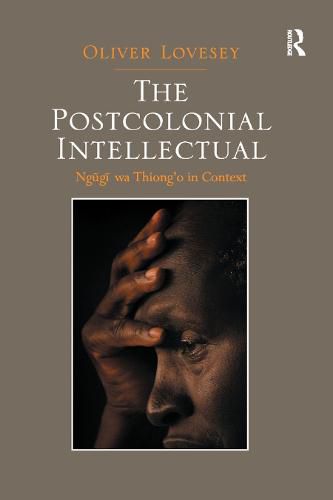Readings Newsletter
Become a Readings Member to make your shopping experience even easier.
Sign in or sign up for free!
You’re not far away from qualifying for FREE standard shipping within Australia
You’ve qualified for FREE standard shipping within Australia
The cart is loading…






Addressing a neglected dimension in postcolonial scholarship, Oliver Lovesey examines the figure of the postcolonial intellectual as repeatedly evoked by the fabled troika of Said, Spivak, and Bhabha and by members of the pan-African diaspora such as Cabral, Fanon, and James. Lovesey’s primary focus is NgA ©gAE © wa Thiong'o, one of the greatest writers of post-independence Africa. NgA ©gAE © continues to be a vibrant cultural agitator and innovator who, in contrast to many other public intellectuals, has participated directly in grassroots cultural renewal, enduring imprisonment and exile as a consequence of his engagement in political action. Lovesey’s comprehensive study concentrates on NgA ©gAE ©‘s non-fictional prose writings, including his largely overlooked early journalism and his most recent autobiographical and theoretical work. He offers a postcolonial critique that acknowledges NgA ©gAE ©’s complex position as a virtual spokesperson for the oppressed and global conscience who now speaks from a location of privilege. NgA ©gAE ©’s writings, Lovesey shows, display a seemingly paradoxical consistency in their concerns over nearly five decades at the same time that there have been enormous transformations in his ideology and a shift in his focus from Africa’s holocaust to Africa’s renaissance. Lovesey argues that NgA ©gAE ©’s view of the intellectual has shifted from an alienated, nearly neocolonial stance to a position that allows him to celebrate intellectual activism and a return to the model of the oral vernacular intellectual even as he challenges other global intellectuals. Tracing the development of this notion of the postcolonial intellectual, Lovesey argues for NgA ©gAE ©’s rightful position as a major postcolonial theorist who helped establish postcolonial studies.
$9.00 standard shipping within Australia
FREE standard shipping within Australia for orders over $100.00
Express & International shipping calculated at checkout
Addressing a neglected dimension in postcolonial scholarship, Oliver Lovesey examines the figure of the postcolonial intellectual as repeatedly evoked by the fabled troika of Said, Spivak, and Bhabha and by members of the pan-African diaspora such as Cabral, Fanon, and James. Lovesey’s primary focus is NgA ©gAE © wa Thiong'o, one of the greatest writers of post-independence Africa. NgA ©gAE © continues to be a vibrant cultural agitator and innovator who, in contrast to many other public intellectuals, has participated directly in grassroots cultural renewal, enduring imprisonment and exile as a consequence of his engagement in political action. Lovesey’s comprehensive study concentrates on NgA ©gAE ©‘s non-fictional prose writings, including his largely overlooked early journalism and his most recent autobiographical and theoretical work. He offers a postcolonial critique that acknowledges NgA ©gAE ©’s complex position as a virtual spokesperson for the oppressed and global conscience who now speaks from a location of privilege. NgA ©gAE ©’s writings, Lovesey shows, display a seemingly paradoxical consistency in their concerns over nearly five decades at the same time that there have been enormous transformations in his ideology and a shift in his focus from Africa’s holocaust to Africa’s renaissance. Lovesey argues that NgA ©gAE ©’s view of the intellectual has shifted from an alienated, nearly neocolonial stance to a position that allows him to celebrate intellectual activism and a return to the model of the oral vernacular intellectual even as he challenges other global intellectuals. Tracing the development of this notion of the postcolonial intellectual, Lovesey argues for NgA ©gAE ©’s rightful position as a major postcolonial theorist who helped establish postcolonial studies.